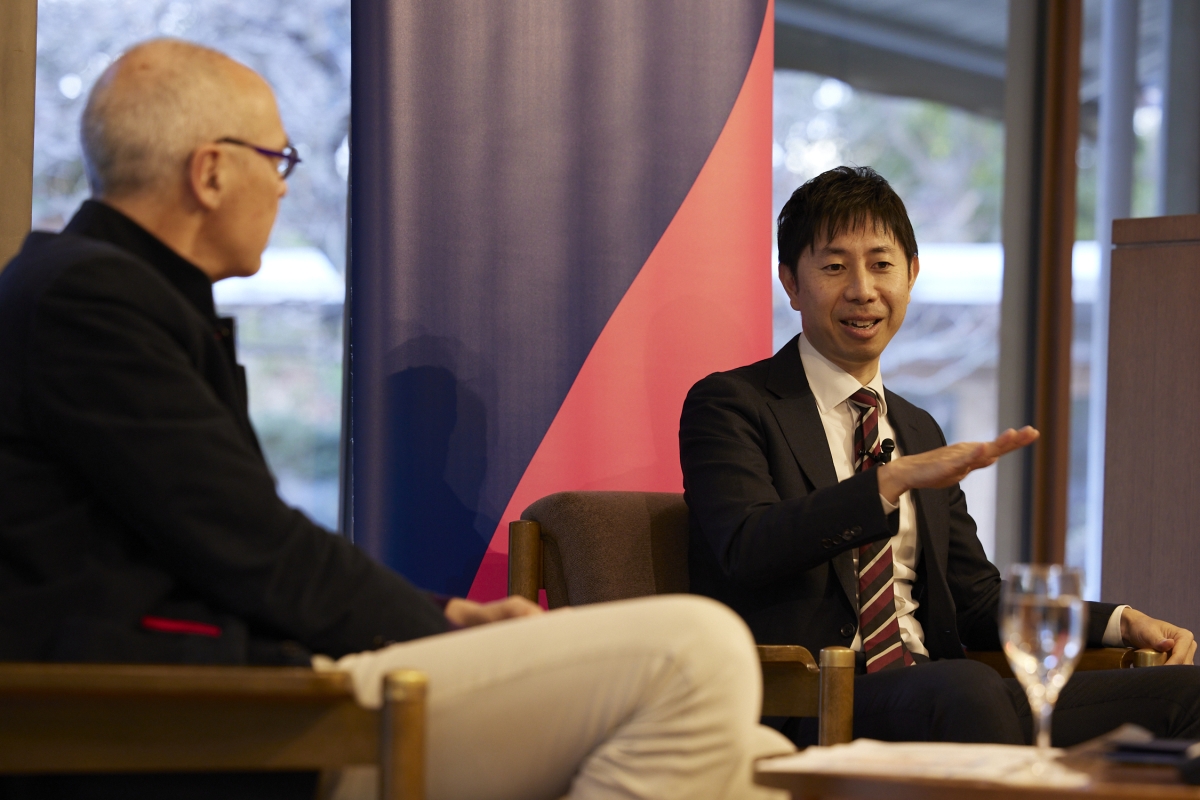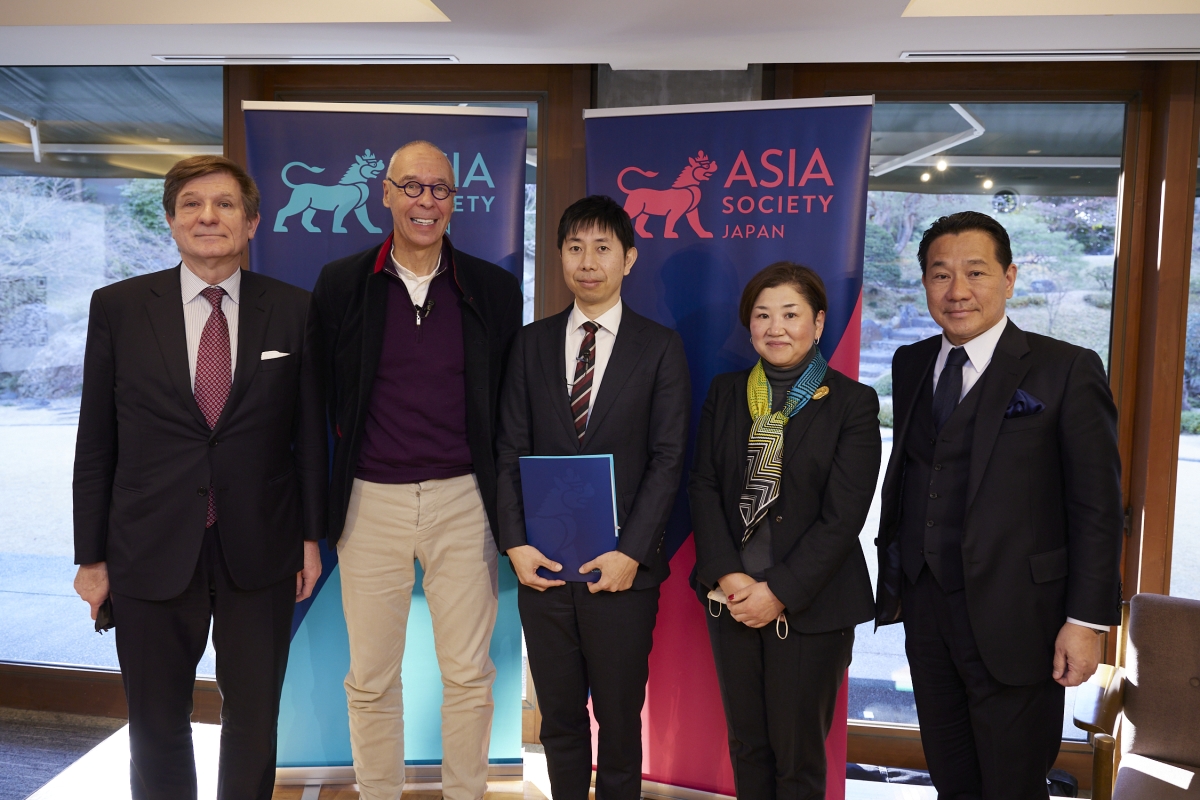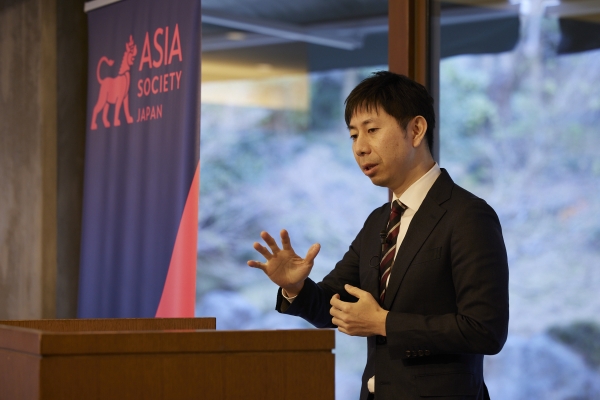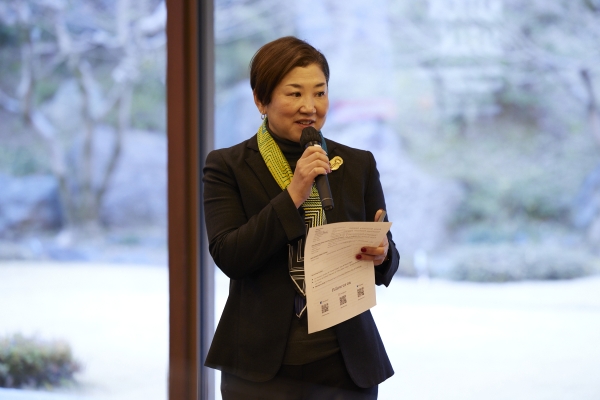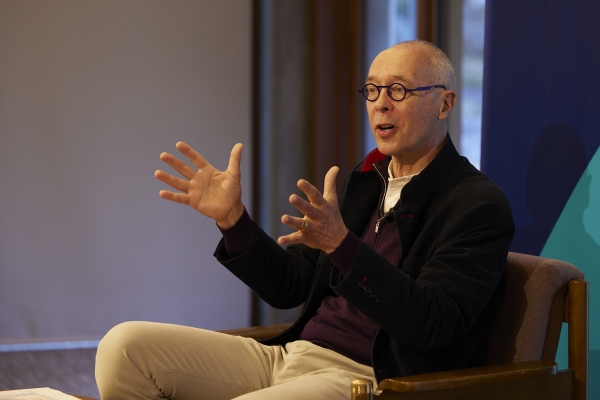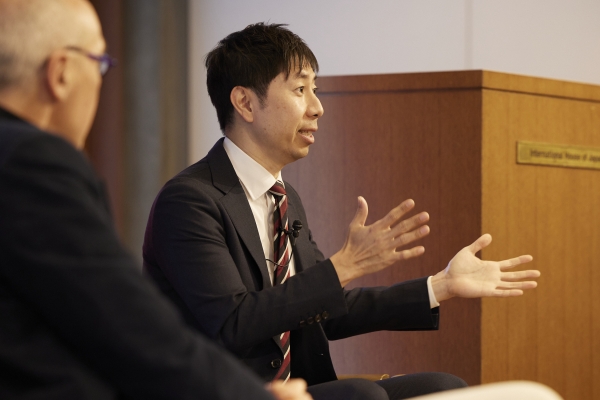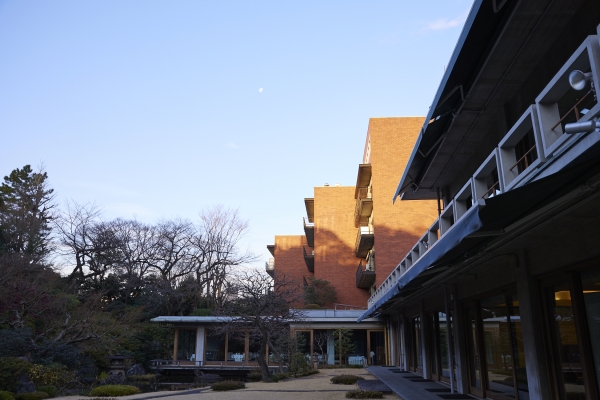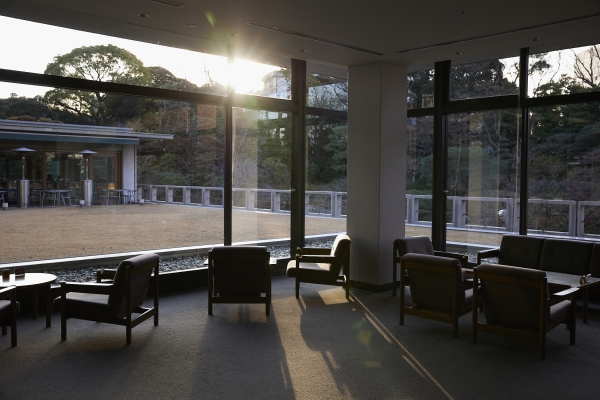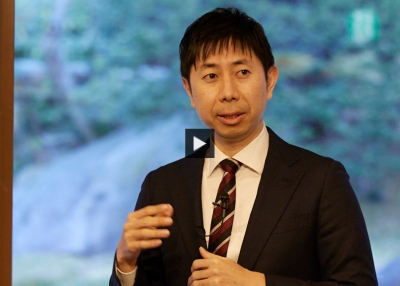Startup Nation Japan: Japan’s Democracy in Action — The Case of CALL4 (Recap)
On January 12, 2023, CALL4 director Motoki Taniguchi discussed the potential that judiciary cases have in bringing positive changes to Japan’s society. Mr. Taniguchi spoke of his personal journey that led him to start the innovative civil rights crowdfunding platform as well as a legal practice that defends and speaks up for civil rights in Japan. Jesper Koll, chair of the policy committee at Asia Society Japan, hosted the program and moderated the fireside chat.
The dawn of impact litigation in Japan
The blue skies that we take for granted today in Tokyo were always gray and smoggy 60 years ago. Regulations to reduce air pollution were implemented only after a concerned mother of a child with asthma joined forces with other like-minded mothers to file litigation.
Impact litigation is not common in Japan compared to other countries around the world, such as the United States and Germany, where hundreds of constitutional cases are fought at the national level every year.
Mr. Taniguchi recently won a lawsuit for overseas voting rights. The Supreme Court ruled the absence of a system that would allow Japanese overseas voters to review the performances of justices on the nation’s top court unconstitutional. It was, however, the only 11th case in the history of Japan.
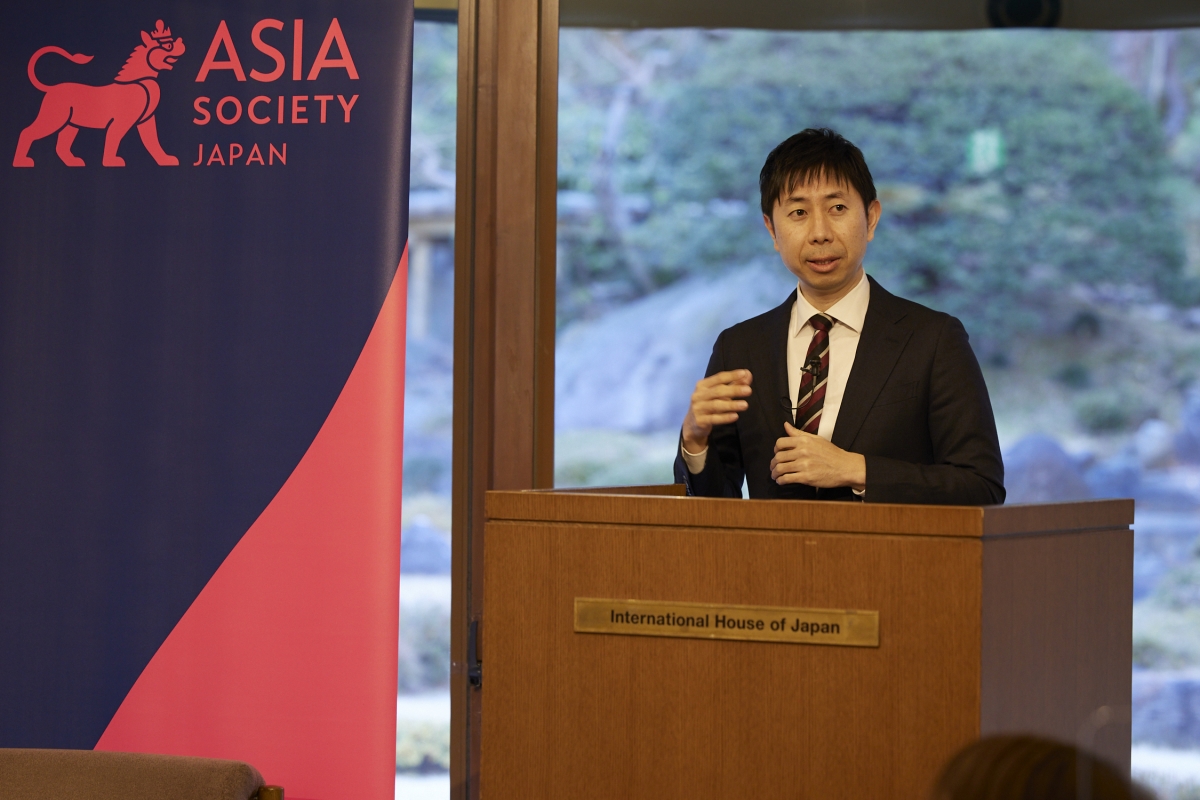
Career turning points
Today, Mr. Taniguchi is a very determined human rights lawyer, but he says that he was not always so confident in the judiciary’s power to bring about positive change in Japan. After losing a case appealing for compensation for the family of a Ghanaian man who died being restrained by immigration officials during deportation at Narita Airport, he was devasted and quit the legal practice. He went to the United States to study social work.
Mr. Taniguchi had always imagined the United States was “the land of the free” until President Trump issued the Muslim travel ban. However, his disappointment changed to inspiration when he witnessed social media flooded with conversations about how it was time for the court to step in. Many people donated to the cause. Lawyers were sitting in the airport interviewing Muslims who could not travel. Eventually, the court ruled that the President's Order was unconstitutional.
Mr. Taniguchi asked himself, “Did I do enough?” He felt that if he had asked for the support of the wider public, the outcome of his earlier case might have been different.
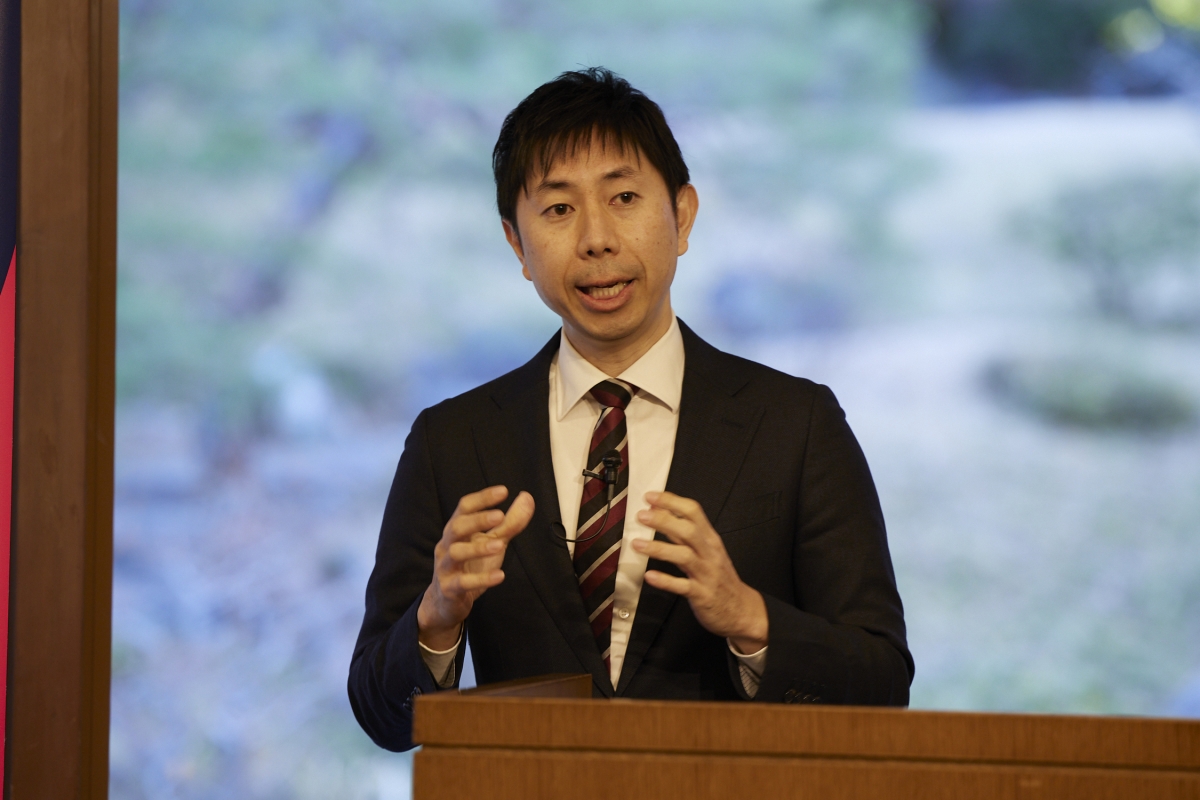
CALL4 – facilitating public access to public interest litigation
Mr. Taniguchi returned to Japan to launch CALL4. CALL4 is a web platform that facilitates public access to public interest litigation (PIL) with an aim to stimulate public discussion on the debates that take place in the courtroom. It offers plaintiffs’ stories and open access to legal materials. It also has a crowdfunding platform to cover legal costs. In the past three years, Mr. Taniguchi’s group has supported 45 cases covering a diversity of topics, including same-sex marriage, hate speech against foreign nationals, and mistreatment in detention centers. The platform has reached out to 10,000 people, raising US $500,000 in total.
CALL4 seeks to build a specialist team for strategic PIL to transform it into an invaluable means to address the issues our society is faced with today. The initiative allows lawyers to engage in 2-3 PIL cases annually, while most lawyers experience them 2-3 times in an entire career.
Under the clear blue skies of Tokyo, there are yet people suffering from discrimination. There is room for improvement in the Japanese legal system, and CALL4 is determined to accelerate this change to realize a just and equal society.
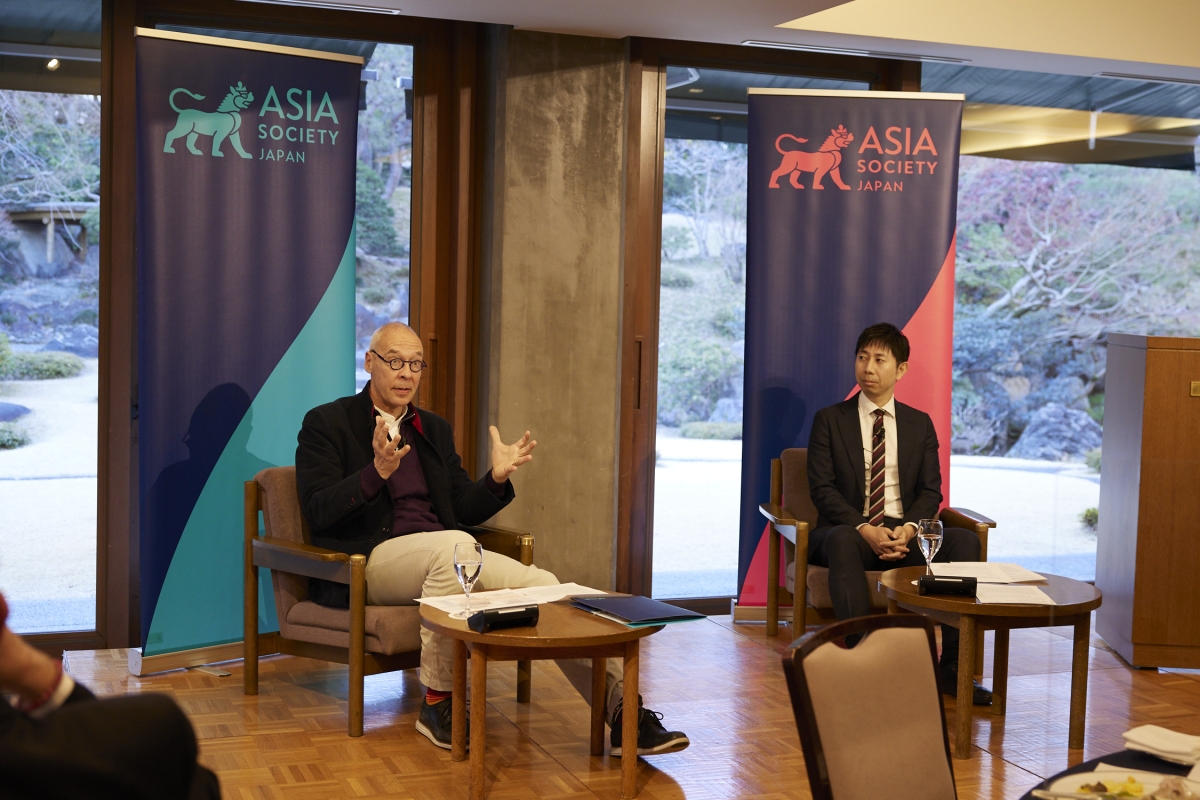
Fireside chat with Mr. Jesper Koll
After his initial comments, Mr. Taniguchi engaged in a fireside chat with Mr. Jesper Koll. They discussed how Japanese society is still ruled by “Okami” leadership which prevents people from being informed enough to have ownership of various social issues. A diverse range of topics was also covered in conversation with the floor, including the absence of a real division of power in Japan, the Japanese culture of taciturnity, political interest in PIL, the myth that Japan is harmonious enough to solve issues without litigation, the abstractness of the laws themselves, the empowerment of on-the-ground regulators, and the slowness of the “Kaizen” (continuous improvement) process.
